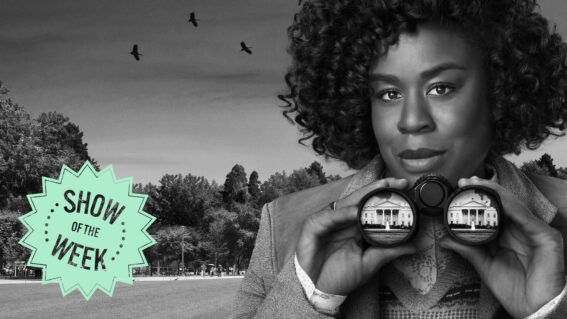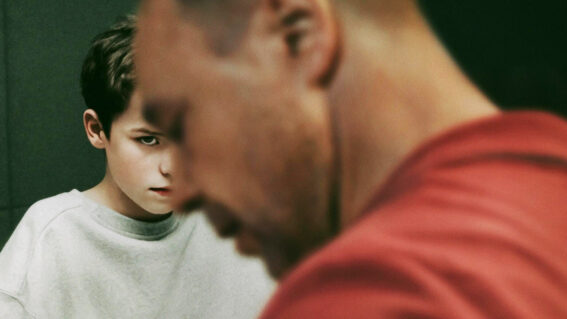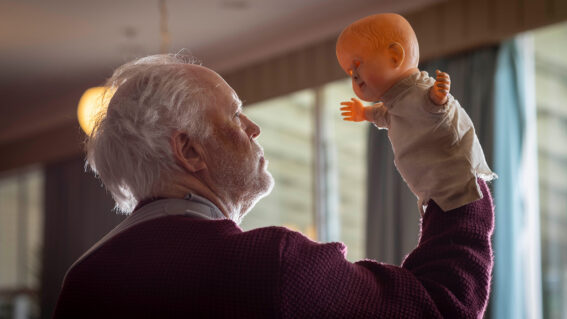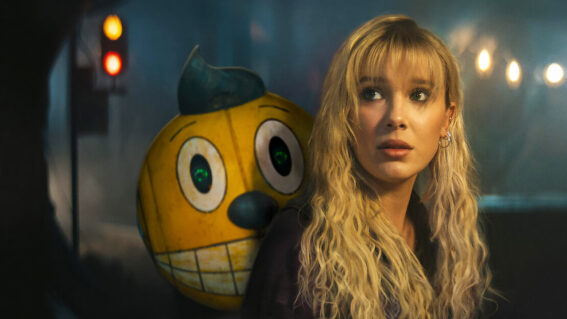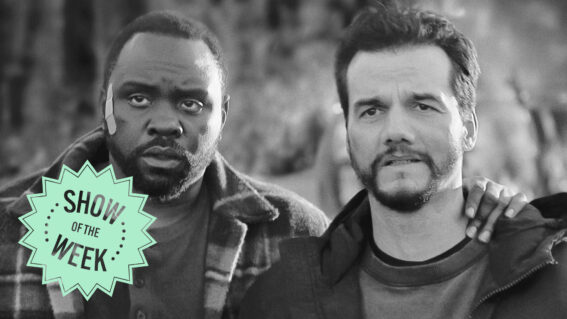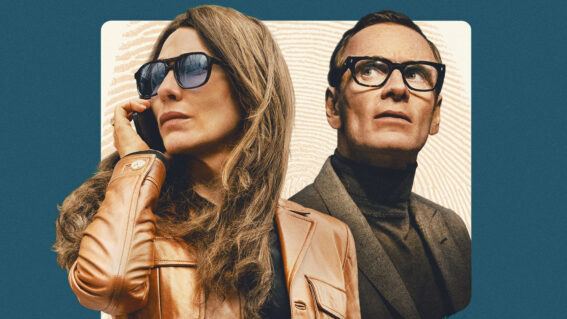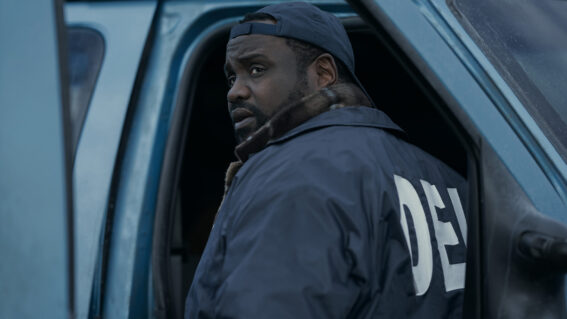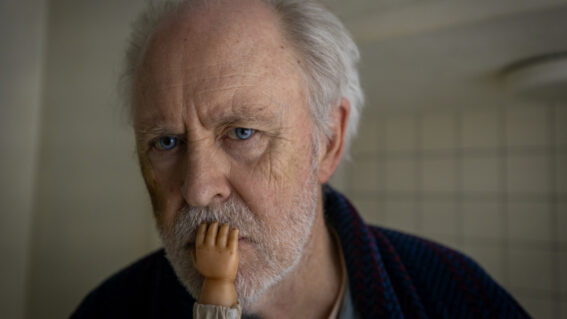Interview: Florian Habicht, director of ‘Pulp: A Film About Life, Death & Supermarkets’
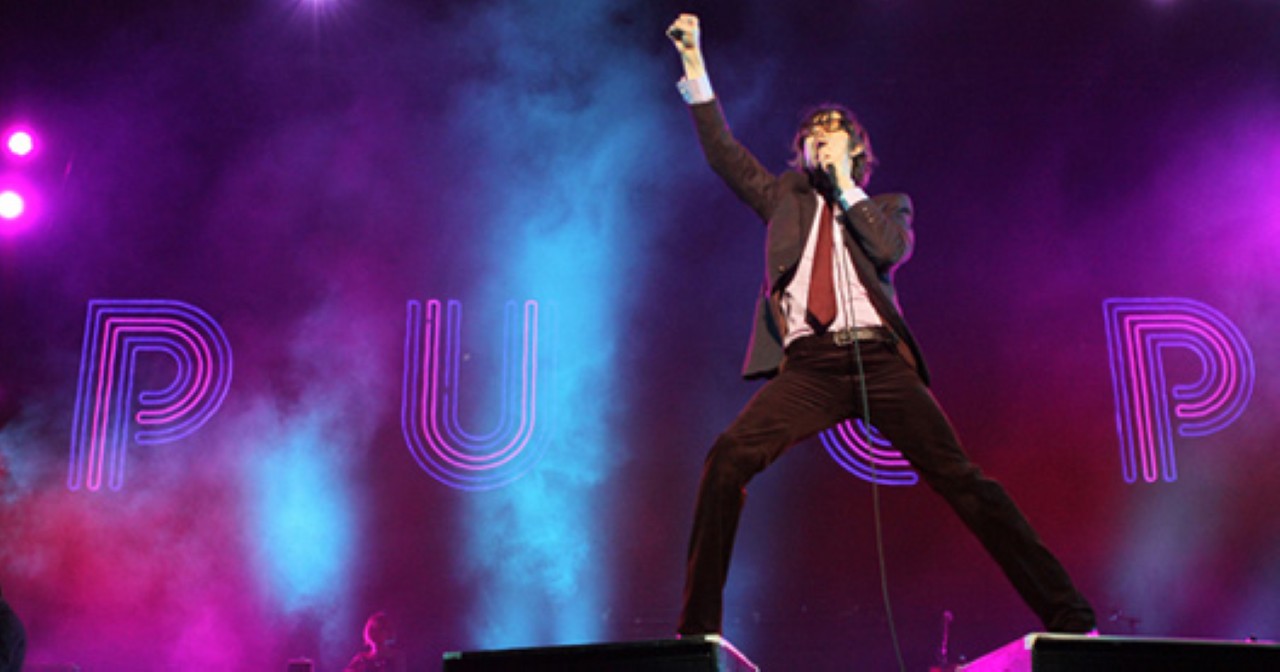
Since first hearing that Florian Habicht, director of Love Story, Kaikohe Demolition et al was making a doco about one of our favourite bands Pulp, we Flicks folks have been hanging out to see it. With the film finally hitting screens at the NZ International Film Festival and Melbourne International Film Festival, Habicht headed down under to show it to Antipodean audiences – and we insisted on having a yarn with him about it. Over crepes, just to set the scene… More on the film and watch the trailer here.
FLICKS: You’re popping around to all these other festivals with this doco. What’s it been like for you having a film where there’s already so much interest in the subject to start with?
FLORIAN HABICHT: It makes it easier. I guess that’s why Hollywood has stars – like if their films didn’t have stars, probably no-one would go and see them.
Yeah! That’s great on the one hand because it gets into festivals and people want to see it, Pulp fans want to see it, people who like music films want to see it. Does expectation comes with it as well though? Since there’s an inbuilt audience, you need to do a little something for that audience specifically?
Yes, in the edit of this film it was hard. The hardest thing was, the fine line between keeping the Pulp fans happy, and making the film enjoyable for non-Pulp fans. We didn’t get that balance till right at the end. If the film was just for Pulp fans, we’d probably have three more concert tracks. But, we were aware of that yes. I think we’ve got it at the right mix.
It’s a real long journey for you with this movie. I know a little bit about how you sort of first pitched the film in, and it sounds like the first stages were all in a rush.
Well, Love Story was made in a real hurry. I’d been rejected for funding from Creative New Zealand and the Film Commission, and both films I thought I’d be making when I came back to New Zealand. Then I decided to extend my flight back, and pretty much in about six weeks time, organized a whole shoot for a film, thinking I’ll have a story in six weeks time. Then I actually realized that I didn’t, and then that became part of the film, that I’m looking for the story while making it. It was kind of the same with Pulp. There was two months from meeting Jarvis, and the rest of the group inviting me to make the film. There was two months until their last show in Sheffield, so about six weeks till filming began. Usually you have a year to develop a film, find the funding and all that – and it was kind of unconventional, doing some things backward. We were shooting, and still looking for funding while we were filming. It was like that crazy.
I guess the good thing is, you must have had the confidence that because of the band, that it would all happen. There would have been good odds of it coming together.
It was still harder than I thought actually. I thought people would just be throwing money at us, but it wasn’t like that – and I think in the UK, funding films is quite hard.
How much did you obscure from Pulp, those production hurdles or funding things, and were they cool with this quite unconventional film coming together?
Definitely I learned that it’s their style in Pulp – making decisions at the last minute, and making them quite intuitively. They didn’t interview other directors and do research like that, that they just had the good feeling with me, and they just went with it.
That’s a great fit.
Yes, and that was how I learnt. The only thing they did say is, let’s make this film under the condition that we get it funded because they didn’t want to pay for it, they didn’t want me to pay for it, so that was them being realistic. Jarvis didn’t think it was enough time to pull it off, and that’s when I sort of talked him into it.
What was it like watching the film with Pulp for the first time?
It was a rough cut, it was a first very spontaneous cut, and I didn’t want to make them feel like it was a finished film – I wanted them to really understand that it’s a rough cut. So I played it to them on a small, shitty laptop, at the Rough Trade office.
So a bit of an expectation limiter?
Yes, so they knew it’s in progress, with some of these funny speakers around the computer. I remember Jarvis tapping his feet when the music came on and stuff. One memorable bit was, there was a bit when this older woman Josephine, she’s sitting on a park bench outside Castle Market in Sheffield and she’s talking about Blur and Pulp. She says that she prefers Pulp, better lyrics, and then the band are all like – were clapping…
In another interview you said that you thought in Sheffield everyone was hiding inside wardrobes, which is obviously a reference to Pulp’s ‘Babies’. That one aside, were there any other generalizations from Pulp songs that you thought of about Sheffield, and was working on this film the first time that you’d been there to experience it?
Well, Jarvis said in the Q and A in Sheffield that, I was like the guy getting dropped out of a helicopter with a camera, like in combat, seeing everything for the first time – that kind of style. Pulp songs are quite sexy and about sex and all that. But Sheffield – it’s not the sexiest place. It’s like you’re arriving in Hamilton in Winter, it’s that kind of vibe.
Awesome, and look, there’s bound to be some sex happening somewhere in the city.
Look, the biggest swingers club in the whole of the UK is in Sheffield. There’s a big swinging scene, and so many people we interviewed were swingers, it was amazing. We actually filmed Bambi Black who’s a Sheffield porn star. She didn’t make it in the final cut though.
So behind the curtains, and totally behind the concrete walls of Sheffield, eh? Then you arrive to make a film about the biggest cultural export of that city for quite a long time and went around talking to people and getting a sense of where they fit into the community. In my mind, it reminds me of a place like Auckland. There’s not many things have transcended out of the environment.
Yes, and it’s a really creative place, and so much stuff happening under the radar as well, so it does remind me of Auckland, or Hamilton as well, a bit back in the days maybe.
How do the people of Sheffield they look at the band because of that?
Because Pulp sing about Sheffield, I figured that’s one reason they’re so proud of them or, claim them, or they’re like folk heroes or something – because Def Leppard, I thought Def Leppard were an LA band. I didn’t know they’re from Sheffield, because their music could be from anywhere. That’s I think the same with the other bands – like The Human League don’t really sing about Sheffield either.
Still, that really fertile late ’70s early ’80s electronic scene seems pretty crazy from Sheffield. There’s some mental stuff there that has a real uniqueness to it, but again, it was a bit Kiwi to me, like it could only happen in a weird kind of place out of the way.
Yes totally, I agree.
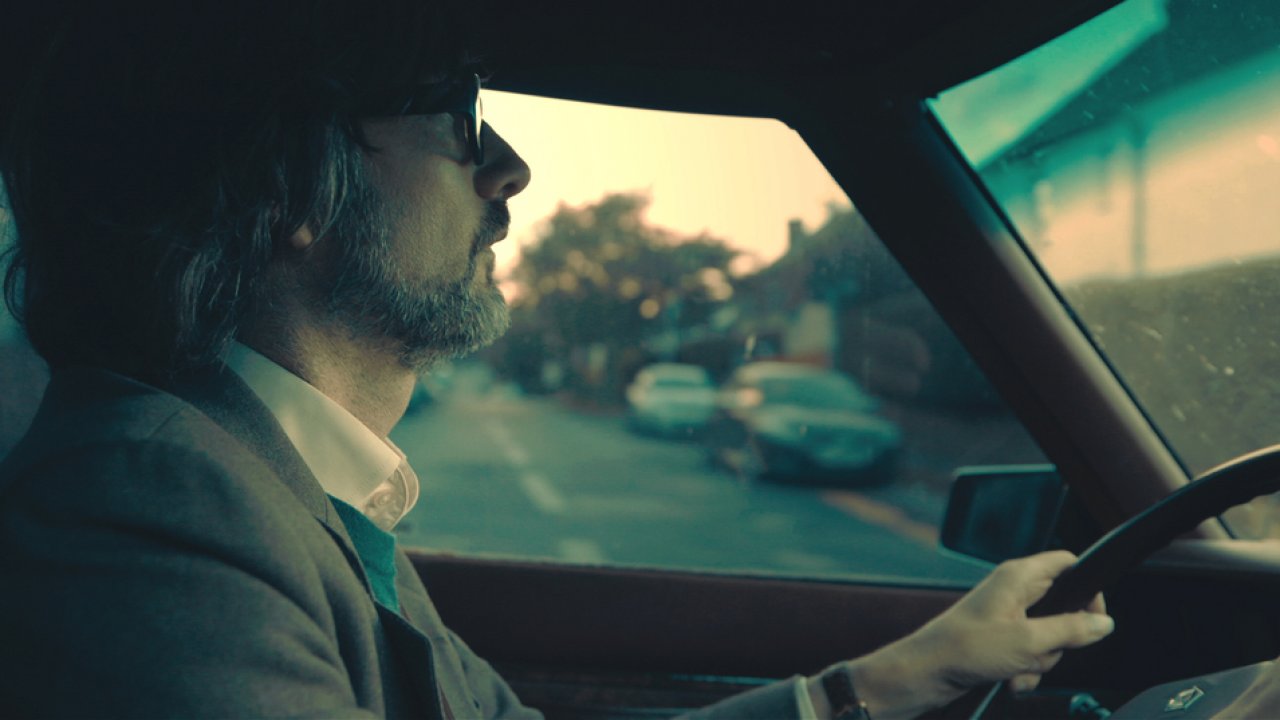
How are the people of Sheffield about being bailed up by a documentary crew and talked into having chats?
They don’t like being filmed, they don’t like cameras. It’s not like Kaikohe or New York, where people are diving in front of the camera wanting to be filmed. In the beginning, I found it a bit challenging, and the band warned me. They said, I’m going to get a shock, after them seeing Love Story – but I didn’t really take it on. When I got there, people were super friendly and welcoming to the max, but as soon as I pulled out a camera…
Is it an innate shyness, a concern about how the final thing’s going to end up, or what people are going to think about Sheffield?
Maybe as well, I know some Sheffielders felt exploited from a film called The Full Monty, which I hadn’t seen then, I’ve seen it now. Like that, they thought we might take the piss out of them in the beginning. It was only after they got to know us and the team, they trusted what we were up to, but yes there was a bit of that. Then there were just people who were generally being shy. We wanted to film at Park Hill which is this huge housing estate – it was the biggest housing estate in the whole of Europe.
Wow. That must be pretty grim.
Yes, and no-one wanted to be filmed there because they’d been filmed and I guess, maybe exploited by so many late television programmes and documentaries.
That was kind of the beginning, it all felt a bit like a challenge. As soon as the weather got nice, everything started flowing and, just met people by chance on the street. There’s some beautiful kids in the film, like the girls at the beginning of the trailer. I was actually interviewing someone else, and they just walked past and asked me, “What’re you doing?”. I just saw the look in their eyes and I thought, oh my god. I said goodbye to the people I was filming [chuckles], and went off with these kids. It was terrible but, when we had the screening in Sheffield, they stole the show, those kids.
You’ve done heaps of that interview stuff before. To do actual concert filming, did you bone up on how do people shoot concerts, or did you just go, “I’m going to do it this way”?
Definitely we were a bit freaked out because none of us had done a concert before, and we only had one chance. I think so many concert films, they’ll film multiple nights. We had one opportunity. You can’t really ask Pulp to do it again.
Totally. So did you bump up your crew for that part of the shoot and just get a bunch of extra angles?
Yes, Maria Ines, she was a DOP on Love Story. She’s a Kiwi living in New York, and she was the DOP for this film too. She kind of orchestrated all the different angles. So yes, for research we watched a few concert films. What Pulp wanted and what we wanted too is, we wanted to capture it in a way that it feels like you’re at the gig. Pulp did that – they actually had the concert recording, they mastered it themselves to really bring out that bass and make it grunty, like you’re standing right at the front.
In Sheffield in the city town hall, it was like The Civic, similar, and I pumped up the volume, the speakers quite loud. It really felt like you were at the gig – you could feel the bass play like you do if you’re up at the front. We shot it visually as well, so that it feels like you’re at the gig, lots of audience perspective, and none of this really super close-up television style. It was more to make you feel like you’re with the audience.
Did you go to many other Pulp shows? Did you do prep on previous shows on the tour just to get a feel for what was going on?
I saw them in Paris, and I just filmed it on my camcorder, and gave that to everyone, to all our camera team. We had really good New Zealand filmmakers, artists, coming in from different parts of the world. Then we had camera people who had worked on some of the other big concert films, like LCD Soundsystem’s Shut Up and Play The Hits, and, the Stone Roses one. We had an arty and really experienced kind of crew, and then we had a few friends with 5Ds as well.
Good to see those different elements come together in the edited film?
Yes and the freaky thing was, we thought they would play for two hours, two and a half hours, but they played for over three hours. We were shooting on Red cameras which is super high resolution, and we only had enough memory cards to last for two and a half hours maximum.
That’s the high-wire act again.
Yes. One mistake and you lose, and that whole shoot we didn’t lose any footage.
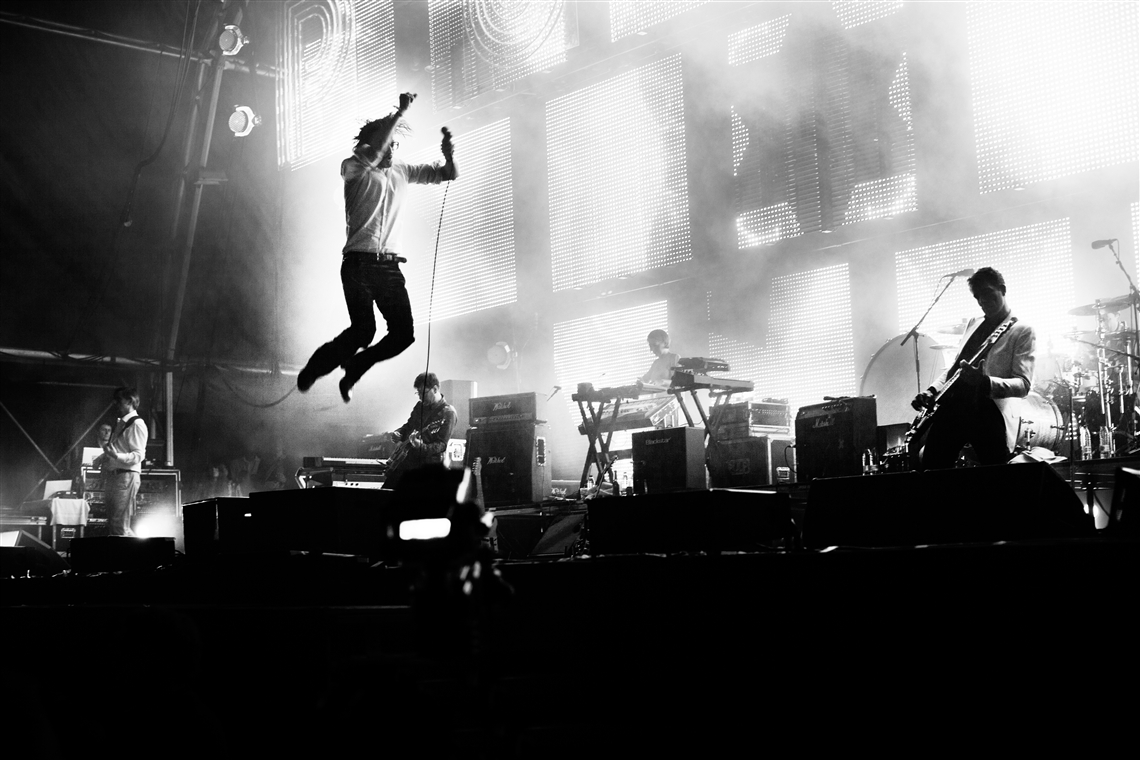
What’s it like shooting at such a maniacal concert? In your own brain as a human being, they’re designed to be these full-on stimulating experiences.
My dilemma was, I love Pulp, I love Pulp’s music, it’d be a dream to be up there filming the band – but, my real talent is probably to be interviewing fans, in the toilets, outside the ladies toilets asking them about the meaning of life, and that kind of thing. I couldn’t work out if I should be doing that or filming the concert, so I saw a psychic and she grilled this guy Peter – he told me you had to be filming, you have to do what you’re good at the most, and you have to be filming the people. Maria Ines, she was as well really saying, “No Florian, we can all film the concert”. Anyway, I ended up doing both. But when I was filming that concert it sort of hit me, because it was such a great show. Then I was just going, “fuck, this is so amazing, we’re capturing this, this is a film about Pulp and we’re making it” – it was really exciting!
I went to see them in Melbourne maybe two years ago, so I’ve seen that tour and I had such a good time, I can’t wait to relive parts of that, by watching the film again. Really, what a fucking awesome band.
Yes, totally. I saw them in New York by chance, and it was great. But the band, when they watched the film, they did say they felt happy that that was one of their best performances – because quite often they would watch stuff from the shows and think “Oh okay not so good”.
Did you see them in Auckland in the ’90s?
Yes.
I thought that show was a bit lacklustre. Something just seemed very flat about that show to me.
It was in the North Shore Events Center?
Yes, like a half full hall.
Oh was it half full?
Yes, the whole thing was just a bit of a downer.
Oh classic. I only remember the good stuff [chuckles].
So what’s the next good stuff you’re doing with the film?
In New York we’re having a Pulp karaoke contest, that Jarvis and I are going to judge. The screening’s on a huge rooftop. It’s a new industrial part of New York that’s becoming the new Williamsburg, and it’s got the skyline and the Statue of Liberty in the background.

